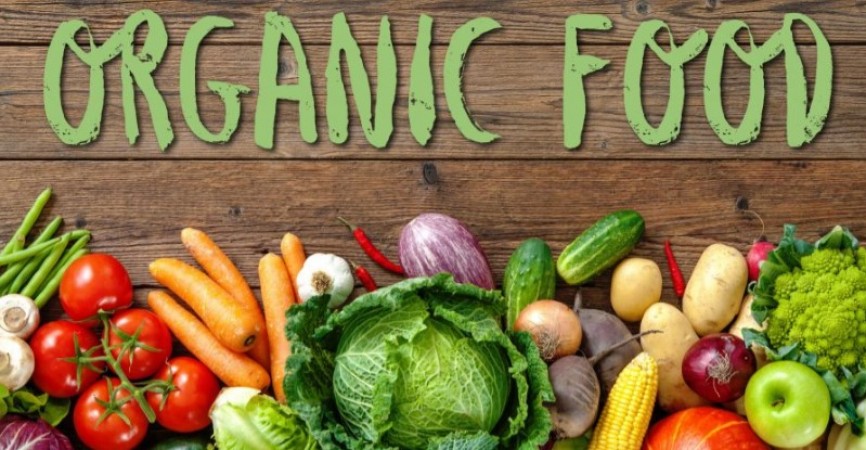
In recent years, there has been a growing interest in organic food, with many people seeking out organic options in their diets. Organic food is produced using farming practices that prioritize environmental sustainability and the health of consumers. Organic food refers to food products that are produced, prepared, and processed without the use of any chemicals. It means organic food production prohibits the use of chemical pesticides, chemical fertilizers, or chemical preservatives. Consequently, organic foods are increasingly gaining popularity because a greater portion of the population wants to know its benefits. The general public belief is that organic food is healthier compared to the conventional ones, and it’s the primary reason for its increased demand over the past decade.In this article, we will explore the numerous benefits of eating organic food. From the absence of synthetic chemicals and genetically modified organisms (GMOs) to the higher nutritional content and positive impact on the environment, organic food offers a range of advantages for both individuals and the planet. Let's delve into the benefits of choosing organic and discover why it has become a popular choice for health-conscious consumers.
No Synthetic Chemicals or GMOs
One of the primary reasons people choose organic food is to minimize exposure to synthetic chemicals and GMOs commonly used in conventional agriculture. Organic farming prohibits the use of synthetic pesticides, herbicides, and fertilizers. Instead, organic farmers rely on natural methods, such as crop rotation, biological pest control, and composting, to maintain soil fertility and control pests. By consuming organic food, you reduce your intake of potentially harmful substances and support a healthier agricultural system.
Higher Nutritional Content
Organic food has been found to have higher nutritional content compared to conventionally grown food. Studies have shown that organic fruits and vegetables tend to contain more essential nutrients, including vitamins, minerals, and antioxidants. Organic farming practices focus on enhancing soil health, which results in plants with a stronger nutrient profile. Additionally, organic livestock is raised on organic feed and pasture, resulting in meat, eggs, and dairy products with higher levels of beneficial nutrients, such as omega-3 fatty acids.
Antioxidant content
The positive effects of antioxidants on overall health have been established in a number of scientific studies, especially those derived from organic foods. This is because organic foods are free of foreign chemicals that normally react with vitamins, organic compounds and minerals thus lowering the essential positive impacts of antioxidants in food products.
Reduced Exposure to Antibiotics and Hormones
Conventional livestock farming often involves the use of antibiotics and hormones to promote growth and prevent disease. However, these practices can have negative implications for human health. By choosing organic meat, poultry, eggs, and dairy products, you can avoid exposure to these substances. Organic livestock is raised without the routine use of antibiotics, and growth hormones are prohibited. This reduces the risk of antibiotic resistance and potential hormonal disruptions in the human body.
Environmental Sustainability
Organic farming practices prioritize environmental sustainability by minimizing the impact on ecosystems and promoting biodiversity. Some of the environmental benefits of organic agriculture include:
a) Soil Health: Organic farming emphasizes soil conservation and the use of natural fertilizers. It helps maintain soil structure, fertility, and biodiversity, reducing soil erosion and degradation.
b) Water Quality: Organic farming practices promote responsible water management, minimizing pollution from synthetic fertilizers and pesticides. This helps protect water sources and aquatic ecosystems.
c) Biodiversity Preservation: Organic farms provide habitats for a variety of plants, insects, birds, and other wildlife. The absence of synthetic chemicals and the promotion of biodiversity contribute to a healthier ecosystem.
d) Climate Change Mitigation: Organic farming practices, such as composting and crop rotation, can help sequester carbon dioxide and reduce greenhouse gas emissions. Additionally, organic farms tend to have lower energy consumption compared to conventional farms.
Support for Local and Small-Scale Farmers
Choosing organic food often means supporting local and small-scale farmers who follow sustainable farming practices. By purchasing organic products, you contribute to the growth of a more diverse and resilient food system. Organic farming methods are often more labor-intensive, requiring greater human involvement. By supporting organic farmers, you help create opportunities for local employment and stimulate the local economy.
The benefits of eating organic food extend far beyond personal health. By choosing organic, you support sustainable agricultural practices that prioritize environmental preservation, biodiversity, and the well-being of farmers. Organic food offers higher nutritional content, free from synthetic chemicals, GMOs, antibiotics, and hormones. Moreover, it contributes to reduced environmental pollution and climate change mitigation. Whether you choose organic fruits and vegetables or organic meat, eggs, and dairy products, incorporating organic food into your diet can be a significant step towards a healthier, more sustainable future. Embrace the benefits of organic food and nourish your health while making a positive impact on the planet.
8 Effective Methods to Reduce Face Fat
Unlocking the Secrets of Healthy Eating and Nutrition: Your Guide to Nourishing Your Body and Mind"
You are also looking for an alternative to white salt, so include black salt in your diet today